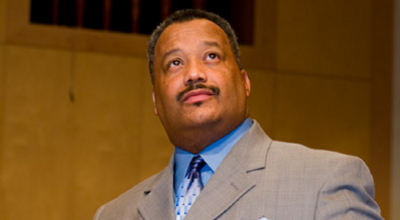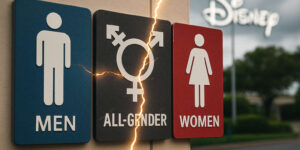Poll: Pastors Say Black President Would Be Good for SBC
Eighty-six percent of Southern Baptist Convention (SBC) pastors who expressed an opinion believe it would be good for the largest Protestant denomination in the U.S. to have an African-American leader.
Many anticipate the historic election of the Rev. Fred Luter, a black pastor from New Orleans, as SBC president at the denomination’s annual meeting next month.
This spring, LifeWay Research polled SBC pastors asking their level of agreement or disagreement with the statement: “Without regard to any individual, I think it would be a good thing to have an African-American as president of the Southern Baptist Convention.”
Of the nearly 1,000 SBC pastors who responded, 61 percent agree it would be positive, 10 percent disagree, but 29 percent don’t have an opinion. Of those who had an opinion, 50 percent strongly agree and 36 percent somewhat agree.
LifeWay Research President Ed Stetzer said the results are good news for a denomination born, in part, out of the racial divides of the mid-1800s.
“Southern Baptists have come a long way. In the last 20 years, the percentage of non-Anglo SBC churches has grown from 5 percent to 20 percent, and now 7 percent of Southern Baptist churches are identified as primarily African-American,” Stetzer said. “But, we are still a predominantly Anglo denomination, so it is particularly encouraging to see the openness and enthusiasm for an African-American SBC president.”
Stetzer believes the high number of those not expressing an opinion, and some of those with a negative answer, may indicate many pastors believe race should play no part in selection of SBC leadership.
Results show significant differences in response based on a pastor’s age and church size, but not the geographic region where they serve.
Seventy-five percent of pastors age 44 or younger say it would be good to have an African-American leading the denomination. And, 73 percent of pastors who lead churches with more than 250 in regular attendance agree.
Regional location of the pastor shows no pattern of significant statistical differences. In fact, the results show many similarities across regions. For example, 66 percent of SBC pastors in the Northeast agree, while 62 percent of pastors in the South agree.
The survey results are reminiscent of public opinion polls taken four years ago that asked if Americans were ready for a black U.S. president. A June 18, 2008, CBS News poll showed 68 percent of Americans agreed the country was ready for an African-American U.S. president.
Stetzer explained the LifeWay Research question was posed to gain perspective on pastors’ views of this anticipated historical vote, but was not focused specifically on Luter. “We wanted to know about race’s role in denominational leadership,” said Stetzer. “What we didn’t want was a referendum or pre-convention vote of confidence of any individual’s skills or electability. That’s why we asked the question the way we did.
“Pastors, when answering, may have thought about a black SBC leader as being a sign of national racial progress or even a positive pivot point in the direction of the denomination,” Stetzer said. “Either way, more than eight out of 10 is an overwhelming percentage and a sign of remarkable progress by any measure.”




























































